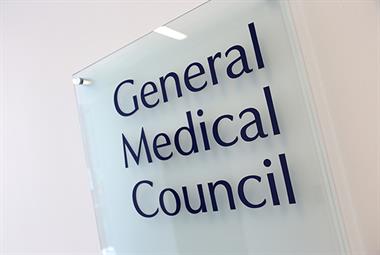Dr Catherine Wills (CW): We’re here to discuss your role as trustee of the charity Doctors in Distress that we, the MDU have just started a partnership with, which we're delighted about.
I was thinking this is quite a natural role for you because the dedication you've shown throughout your life as a practising GP and also to supporting and representing doctors is remarkable.
The vision of Doctors in Distress is to prevent suicide in healthcare workers, but today we'll focus on GPs. What's your view and your perspective on the enormous pressure that GPs are under at the moment?
Dr Chaand Nagpaul (CN): Doctors in Distress was founded after the tragedy of a death of a consultant cardiologist, which led his brother to form the charity. But the charity of course is very much involved in trying to improve mental health and to prevent doctors getting to that point. So, it's not just about preventing suicide, but it's also about promoting and protecting the wellbeing of all healthcare professionals.
With regards to general practice, we're suffering at the moment due to a mismatch between escalating, or rather rocketing, demand and a reduction in the numbers of GPs and their capacity. Unfortunately, since 2015 we have about 2,000 fewer full time GP equivalents working in our health service and yet we've seen consultation rates increase dramatically – by about 19% since before the pandemic.
On top of that, GPs are now providing much greater levels of care. It's not just consultations, but what they provide in terms of the complexity of care for patients. We are managing patients who would otherwise have been seen in hospital clinics.
We are following them up and we're seeing people discharged early and we're managing them in the community, so the workload has expanded exponentially.
It's unfortunate that surveys have shown that eight in 10 GPs report that they feel stressed, anxious, or depressed. Now that's a striking statistic showing the degree of distress amongst GPs. 48% of GP practices have reported losing GPs from their practice because of stress or burnout. And tragically one survey showed that one in four GPs had heard of a colleague who had taken their own lives.
GPs are under huge strain and pressure, and I think that the workload demand and lack of capacity translates into issues such as the fact that we see patients at ridiculously short consultation times, 10 minutes and if you're lucky, maybe 12 minutes in some practices, but that's woefully inadequate for the complexity of care that we're trying to provide.
Seven in 10 GPs feel that the way in which they're asked to provide care, these short consultation times and the high numbers of patients are impairing their ability to provide safe care. Of course, that means that GPs go into work worried about making mistakes and that adds to stress and anxiety. The long hours mean that they don't have time to rest.
So, all of this accumulates and what we're seeing is, and I've never seen this before, young GPs, GPs in their fifties retiring early, it's almost become the norm that I meet GPs who are reducing sessions because they cannot cope with the workload. And what that means is that you then add further pressure on all of us when we work because we don't have the GPs because GPs are obviously trying to protect themselves by either reducing work or retiring early.
This is all a cumulative phenomenon that is resulting in considerable distress amongst GPs. I think the other thing to mention is that the way GPs provide care is very personal and individual to patients and they feel individually accountable and responsible.
It's just the GP and the patient in the consulting room and therefore you get to know patients. There's the continuity of care, you feel the patient's distress, you see the impact of their health on their lives, which isn't quite the same when you see a patient, for example, for an episode of care for a particular condition in an outpatient clinic. It's not the same for example, when patients are cared for in a ward in hospital where there's a sense of corporate teamwork, but with general practice it's you and the patient. I think it does add additional accountability, vulnerability, and pressure to make sure you do your job well.
Pressure on GP partners
CW: Yes, enormous pressure. As a GP partner there are perhaps additional layers of pressure because of all the other things apart from clinical care that are on your plate as a partner. Would you like to say a little bit about that too, about those pressures?
CN: Yes, I think that often it's overlooked that GP partners are of course responsible and accountable for running their practices. That is a huge responsibility. It is about regulation with the CQC and all that goes with it. The preparation, being sure that you're compliant with never ending list of regulations and contractual obligations.
It means running your practice in terms of the way it's managed, making sure you've got the right skill mix of staff, making sure they are working as they should. You're responsible for their acts and omissions because you are responsible for the practice. If there are HR issues such as a grievance, or an employment tribunal, you as a partner will be responsible, not some chief executive or HR department.
In England, we have primary care networks, so each GP has to have a partner or lead GP that is responsible for making sure that the practice engages within that agenda, just in terms of making sure that we get enough resources.
Again, as a partner, you are responsible for ensuring the practice achieves a financial balance and solvency so that you can pay your staff and provide care. You need a huge amount of additional skills and responsibilities as a partner.
Now what we are finding is that more GPs are shunning partnership, and we are seeing a reduction in the numbers of partners because they find this additional responsibility and workload on top of being a GP and seeing patients is just too much.
I'm worried because what that means is that existing partners then feel under greater pressure as they lose their colleagues, and that's also resulting in some practices literally handing the contract back because they don't have the partners to run their practices. So, I'm worried about that.
Mental health stigma
CW: Yes, and people under such incredible pressure doing these amazing jobs, but under such pressure they do become mentally ill. I wonder if you'd like to give us your thoughts about the stigma that exists around mental health in the healthcare sector.
CN: Yes, I am concerned that there is considerable stigma amongst the medical profession and a lack of openness about mental distress. I think part of this is about the fact that doctors see themselves as healing and caring and treating others. So, they don't want to be showing their own vulnerability to patients to give patients confidence that they're going to be looked after.
However, I think it's important that we almost reframe that into making it much more open and understood that doctors are human beings just the same as their patients and they're prone to the same stresses and strains, in fact, in many cases more so than the average member of the population.
It's important for that I think, to come out into the open and instead of seeing this as an issue of shame, it should be an issue of normality about the fact that you are human.
I also think that by being human and experiencing the same distress and mental issues and lack of wellbeing as the people we care for, there's greater chance for empathy and a greater chance, I hope that patients themselves will respect that. They can be understood by the doctor they're seeing. I think that's important.
I think the other thing for GPs in particular is that they develop very close relationships with their patients. They see patients on a continuous basis. I've known patients for 34 years since I joined my practice. What you find is that GPs don't want to let their patients down and they even change their holiday plans. They even feel guilty about taking time off because they're in the middle of caring for a patient.
So, it's very individual, that relationship, which isn't quite the same for many other sectors of care for patients, for example, often if you are in hospital. I think that also adds to GPs not wanting to reveal their vulnerability.
CW: Yes, those are all really important points. Stigma is unfortunately still there. You've talked a little bit already about de-stigmatising by being more open. Is there anything else that you think can or should be done to help de-stigmatise mental ill health and distress amongst medical professionals?
CN: I think there needs to be openness right from medical school training and upwards amongst the profession, amongst policy makers, ICBs, NHS England and the equivalent authorities in the devolved nations and government, that being a doctor is a highly stressful job and that we should be aware that with it, you can have and you do have doctors naturally having mental health, stress, pressure, and distress. We need to be open about that and at a much earlier stage because in fact, for many doctors, they reach a point of severe distress because they haven't talked to anyone.
We need to create a climate, a working environment, where the first thing is to create space for colleagues to just say hello to each other, to talk about anything that they may feel upset about or stressed about. Often by just doing that, you prevent issues progressing and you allow yourself to cope because you've got that sense of camaraderie and peer support. We need to make that the norm.
However, GPs are working flat out. They barely get a chance to have coffee or lunch, leave aside being able to spend time with their colleagues. So, I think we need to build that in. We need to also build in a much more open culture where a colleague can go to another and just say, I've had a really bad day, or I'm worried about this patient, or I'm worried about this, but also don't forget that GPs are also human, they have stresses outside the practice, personal stresses.
We need to change that, and we need to be making sure that we encourage colleagues to just be human and support each other because sooner or later we will need that support because we're all human. So that's, I think, what we must do at an early stage.
We also need to make sure that GPs and doctors more widely know that they can go somewhere for help. We do have avenues. We have, for example, Doctors in Distress. It provides free workshops where GPs can go and talk about the issues they face. Doctors have felt that experience to be transformative for them and has made a huge difference.
GPs find it hard to take time off work and sometimes don't feel comfortable speaking to their own GP. I think at a policy level, we don't have, in general practice the same occupational health services that our hospital colleagues take for granted. That is something that needs to be addressed. However, we do have the practitioner health program for any GP who feels they need medical care, and that includes mental health care.
Support for doctors
CW: Yes, practitioner health is a service that we, in our role here are familiar with and have incredibly high regard for. Thank you also for referencing the excellent work that you provide as a charity. I wonder if we should say a little bit more about the programs that are on offer there.
Through our partnership, there are going to be some specific peer support sessions for foundation doctors and webinars for medical students. But is there anything you want to add about programs for doctors out of foundation training or any doctors more generally?
CN: We provide a range of services, and it's important that if any doctor or medical student wants to know what we're providing, just give us a call or look on the website.
The other service that I think is important that we do provide is support for international medical graduates. Any doctor coming here from abroad is working in a very different culture and climate and even more so in general practice. It's really, important that doctors from other countries often separated from their family or do not know anyone in this country are not isolated. Consequently, we also provide specific support programs for international medical graduates.
CW: I read that you are a music lover. I am very much too. I find it very helpful for my own wellbeing. Of course, music tastes vary very widely and are very personal. But to round off, do you want to give us a recommendation of an artist or track that we could check out that we might enjoy?
CN: Well, I mean, I have such an eclectic taste, so it's very hard to pin down, but I love jazz and I love live jazz. I have to say that it's one of the greatest antidotes to stress just walking into a jazz club. I've been a member of Ronnie Scott's since being a medical student, and I think music transcends everything.
My favorite artist is a jazz trumpeter, Miles Davis. The album that I would say is my favorite is called Kind of Blue, but I also love singer-songwriters like Bob Dylan. Remembering of course, that lyrics also express the reality of life stresses, engaging in music, it can be de-stressing for me at least.
I think all doctors should tap into whatever they find gives them pleasure, and make sure they find time for it, because you do need to look after yourself.
Find out more
Learn more about the partnership between the MDU and Doctors in Distress here.

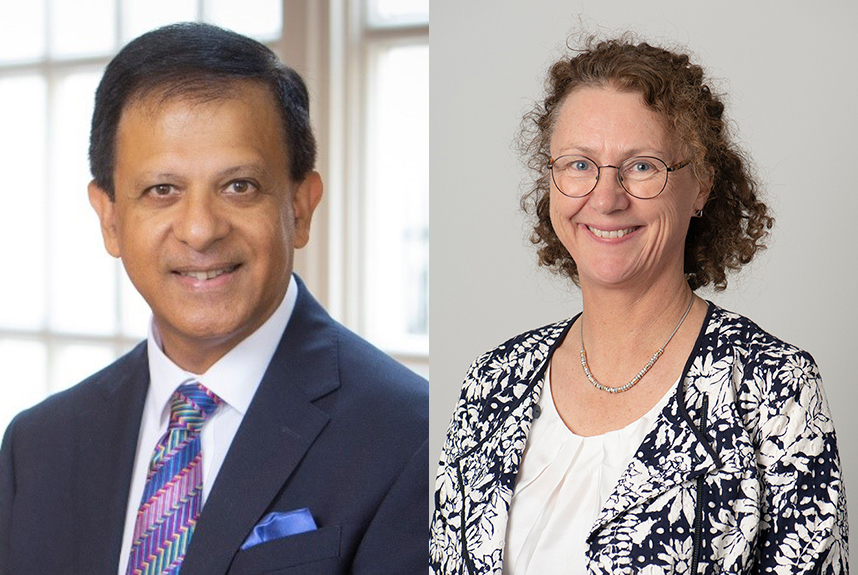

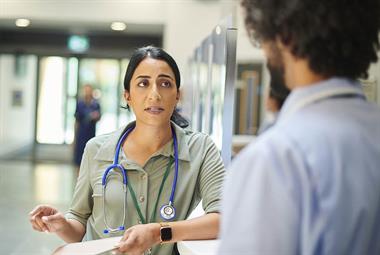



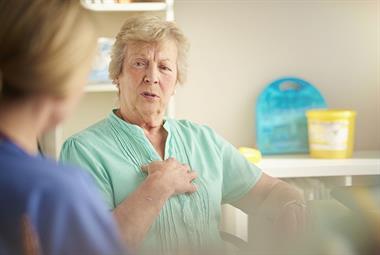
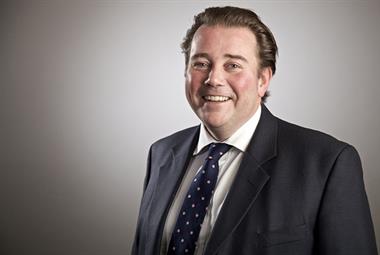
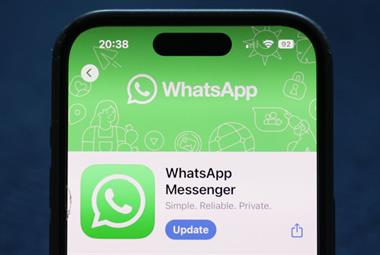
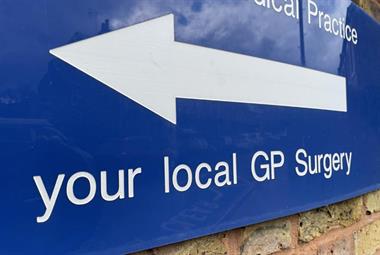
.jpg)
